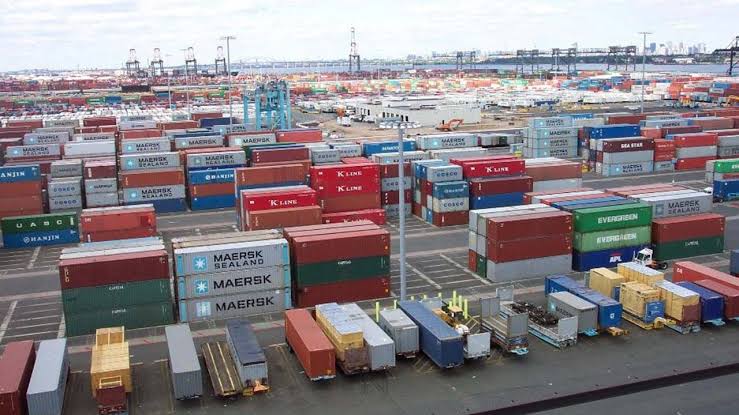
Importers and freight forwarders are currently grappling with staggering monumental losses following last week’s two-day strike orchestrated by the Nigeria Labour Congress (NLC), which also affected the ports.
Our correspondent confirmed that the paralysis caused by the strike has sent shockwaves through the industry, as freight forwarders, importers including transporters have incurred losses running into billions of Naira.
Our correspondent gathered that the strike’s impact apart from demurrage costs, has been particularly severe, with importers bearing the brunt of skyrocketing expenses.
Stakeholders noted that the closure of ports during the strike led to financial setbacks cutting across the import-export chain.
Industry leaders, including Dr. Muda Yusuf, CEO of the Center for Promotion of Private Enterprise (CPPE) expressed deep concern over the demoralizing effect of these additional costs on businesses.
Yusuf, in a chat with our correspondent underscored the widespread losses suffered by stakeholders. He pointed out that the impact of the disruption transcends the actual strike days, leading to a prolonged economic strain on businesses and individuals connected to the maritime industry.
He stated that time-sensitive exports, especially perishable goods, have faced critical challenges stating that the precarious nature of these goods, where even a minimal delay of one to three days can result in significant losses.
He further informed that the repercussions extend beyond cargo itself, impacting logistical services crucial for transportation.
Yusuf explained that stakeholders who rented trucks for cargo transportation now find themselves in a predicament, with what was initially planned as a one-day rental, stretching to three or four days due to the strike. He said the unforeseen extension has added an extra layer of financial strain on businesses already.
“Many of the stakeholders in the economy have suffered serious losses as a result of the disruption that was caused by the strike. First, demurrage losses or demurrage costs on cargo. And that’s additional costs on the imports.
“Then, there are some perishables that people export. Most of our exports are majorly agro-based products. And those things are time-bound. One, two, three days delay can make them go bad or can cause their quality to deteriorate. And it will affect their value. That’s another major loss.
“Then, a number of people have rented trucks to lift cargo. When you say you are renting a truck for one day and because of the strike, the thing is now going to be about three or four days because the impact of this disruption is not only for those two days. It extends, so the loss is much and it transcend beyond the two days”, he said.
On his part, the immediate past sole administrator of the Association of Nigeria Licensed Customs Agents (ANLCA); Mr. Babatunde Mukaila confirmed that the two-day strike may have caused the economy a loss running into billions of Naira.
Mukaila argued that the insurance of goods should cover for the demurrages that may have been incurred as a result of the two-day strike.
His perspective underscores the complex nature of the losses incurred, raising questions about the responsibility for mitigating these financial setbacks.
He remarked, “I will not say its potential demurrage for freight forwarders; we did not own the cargo, we only represent the owner. That said, this is a force majeure, which I believe the insurance of the goods should cover adequately.”
Mukaila further emphasized the significant economic ramifications of the strike, stating, “Quantifying the losses will be an understatement, as we all know that our nation is import-dependent. Therefore, this in the last three days should be in billions of Naira, presently”.
Speaking also, the senior special adviser to the President of ANLCA on media matters, Mr Ayo Suleiman stated that shipping companies have started giving demurrages on the containers that were caught at the port during the period of strike.
He stated that on the ANLCA general platform, the debate is on, as to whether or not clearing agents should pay the demurrage incurred, this is even as he warned that another round of protest may occur if the shipping companies insist on collecting demurrage on the containers.
“We are not the one that went on strike, even if for a particular purpose we shouldn’t be the one to bear the brunt, like it is now, by the time people refuse to pay these demurrages, another protest might come up, because this strike was not created by the importers or freight forwarders. So why should they push it to us and if there is further delay as a result of the protest, then it’s like calling for another port congestion remember we are close to Christmas” he said.















